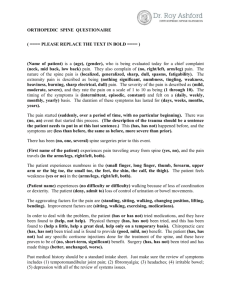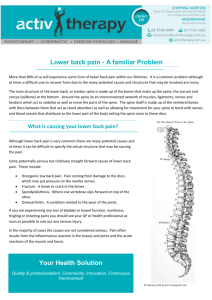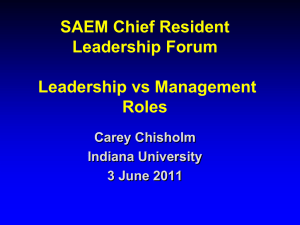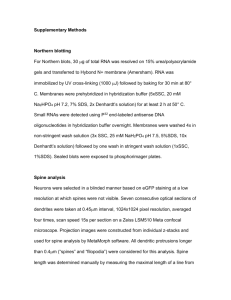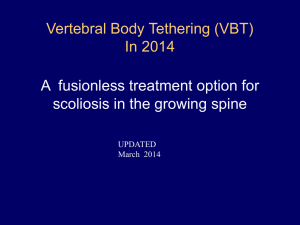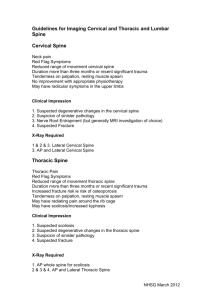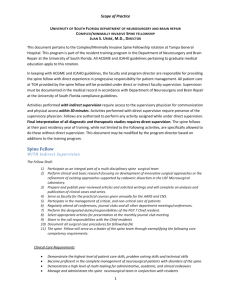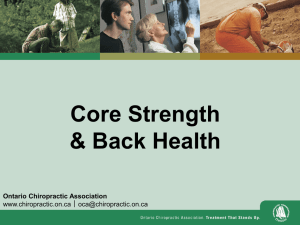Budget-Identifier-presentation
advertisement
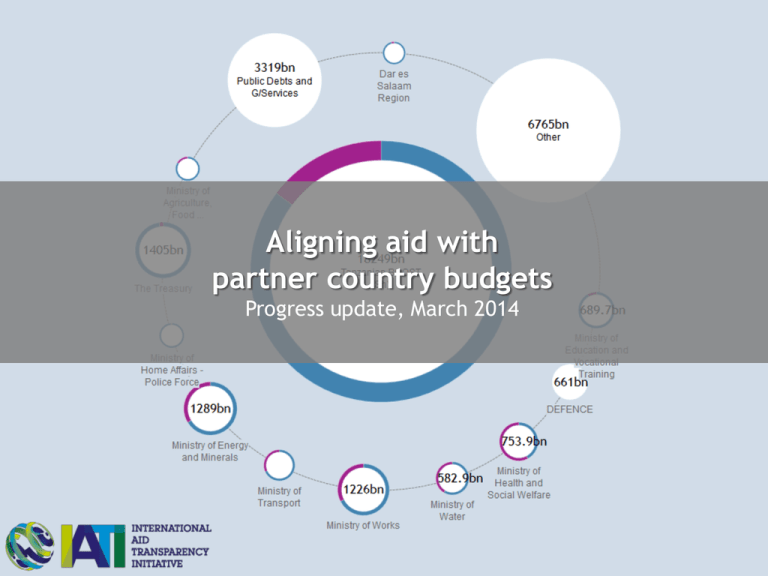
Aligning aid with partner country budgets Progress update, March 2014 What is the budget identifier? • Two required elements, as approved in 2012: – Common code, or “Spine” • “Rosetta Stone” helping match donors’ sector codes against partner country budget codes • Individual mapping required between Spine and each country budget classification – Economic classification • capital v recurrent expenditures • Aiming for automatic exchange of data: IATI data → (aid management systems →) budget Mapping from donors, to the Spine, to the budget http://publishwhatyoufund.org/testarea/tz/mapping/donor-spine-vote.html Example 1: mapping to a country budget • Project information from donor system: – Title: English Language Teaching Training – Description: To support the improvement of the quality of education in primary schools in Tanzania and to increase the number of children, particularly girls, able to transfer to secondary education by improved teaching of early grade reading and numeracy. This will benefit 230,000 children by 2017. – CRS Sectors: 11220: Primary education (50%) 11130: Teacher training (30%) 11110: Education policy and administrative management (20%) – Economic classification: Recurrent (100%) – Spine codes in IATI file: 5.5.5: Social Affairs – Education - Primary (50%) 5.3.11: Social Affairs – Education – Teacher training (30%) 5.3.1: Social Affairs - Education – Administration, policy and planning (20%) Example 1: importing data into a country system Example 2: project mapped to a country budget • Project information: – Title: Accelerating Efforts to Improve Maternal and Child Health in Simiyu region – Description: Improve health services for mothers, newborn babies and young children by strengthening existing health systems, refurbishing health centres and district hospitals, providing training for local government officials and health workers and supporting community engagement activities. – CRS Sectors: 12220: Basic health care (20%) 13030: Family planning (20%) – Economic classification: Capital (50%) Recurrent (50%) – Spine codes in IATI file: 5.1.1: Social Affairs – Health – Policy, planning and administration (100%) 13020: Reproductive health care (20%) 12250: Infectious disease control (20%) 13040: STD control including HIV/AIDS (20%) Example 2: importing data into a country system Conclusions on the Spine • Current CRS codes work for 70% of projects – Using 2 CRS codes (rather than “Multisector”) brings this to 83% • Sub-codes needed for remaining 30% – 20 Spine codes are more detailed than CRS • The Spine does not require changes to donors’ systems if already using CRS codes – However, more precise sector codes (including the new sub-codes) would yield better results Conclusions on the economic classification • Need guidance to ensure consistent classification of capital expenditure – What constitutes capital expenditure from the perspective of the partner country, not the relevant Ministry of Finance/Treasury in the donor country. • Not possible to generate economic classification from existing published data • Probably need to collect data at source (ie in project documents) – Changes to donor systems may be needed to capture capital expenditure Next steps • Consultations on Spine and capital expenditure • Finalizing Spine and guidance • Timelines • Country-level case studies of integration – technical issues – process issues Mapping Donors’ CRS Sectors against the Common Code http://publishwhatyoufund.org/testarea/tz/mapping/donors-category.html http://publishwhatyoufund.org/testarea/tz/mapping/donors-sector.html
